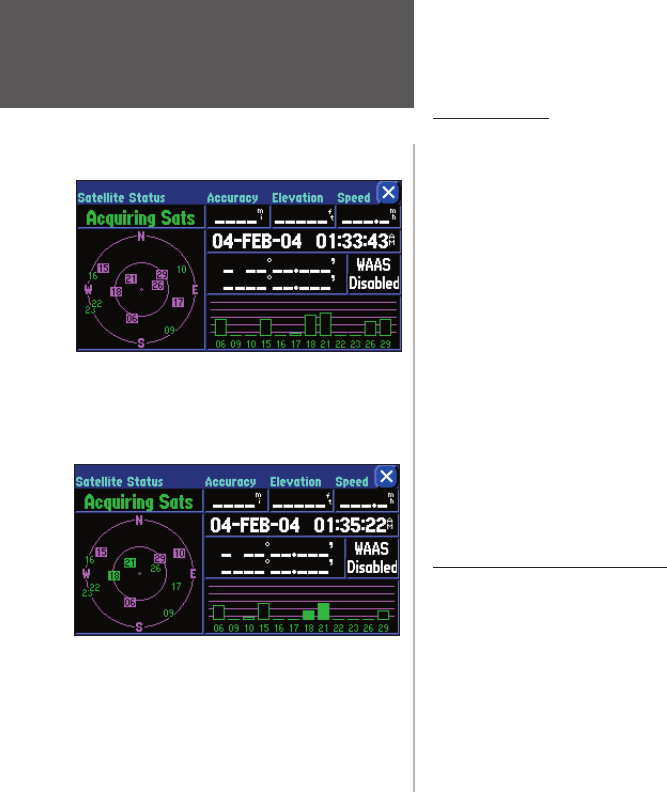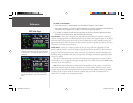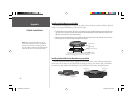
Reference
56
GPS Info Page
Understanding the GPS Information Page
What is GPS?
The Global Positioning System (GPS) is a satellite-based navigation system made up of a network of
24 satellites placed into orbit by the U.S. Department of Defense. GPS was originally intended for military
applications, but the government made the system available for civilian use in the 1980s. GPS works in
any weather condition, anywhere in the world, 24 hours a day. There are no subscription fees or setup
charges to use GPS.
GPS satellites circle the earth twice a day in a very precise orbit and transmit signal information to
Earth. The GPS receiver that is located in your StreetPilot takes this information and uses triangulation to
calculate your exact location. Essentially, the GPS receiver compares the time a signal was transmitted by a
satellite with the time it was received. The time difference tells the GPS receiver how far away the satellite
is. Now, with distance measurements from a few more satellites, the receiver can determine your position
and display it on the StreetPilot’s Map page.
A GPS receiver must be locked on to the signal of at least three satellites to calculate a 2D position (lati-
tude and longitude) and track movement. With four or more satellites in view, the receiver can determine
your 3D position (latitude, longitude and altitude). Once your position has been determined, the GPS unit
can calculate other information, such as speed, bearing, track, trip distance, distance to destination, sunrise
and sunset, time, and more.
The GPS Information Page
The GPS Information page provides a visual reference of GPS receiver functions, including current
satellite coverage, receiver status, and position accuracy. To access this page, press the StreetPilot MENU
key; a Menu page will appear. From the Menu page, select the Info icon, and an Info page will appear. Touch
the GPS Info icon and the GPS Information page will appear.
GPS satellites are positioned throughout the sky. As soon as you turn on your StreetPilot, it attempts to
acquire satellite reception. From the sky view area on the GPS Information page, you can see which satel-
lites are currently in your area; each satellite has its own number (from 1-31).
A hollow bar (such as satellite numbers 6, 15, and 17)
indicates the StreetPilot has found the satellite(s) and
is collecting data. Note how the StreetPilot has not yet
found satellites 9, 10, 16, 22, and 23.
Solid green bars indicate the StreetPilot has collected
the necessary information and that satellites 18 and 21
are ready for use.
190-00342-00_0A.indd 56 4/13/2004, 9:57:20 AM


















